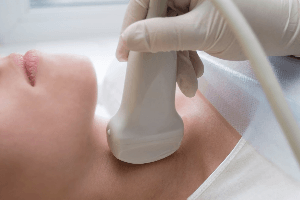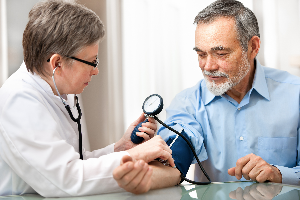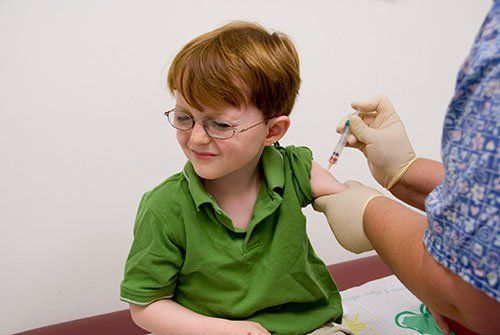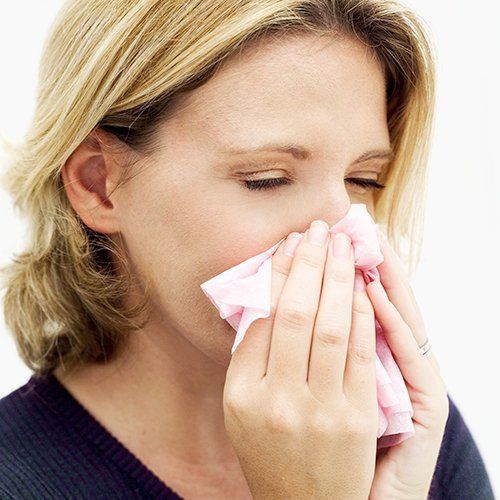8 DO'S AND DON'TS FOR A HEALTHY NIGHT'S SLEEP
Admin • October 14, 2021

If you suffer from knee arthritis, you may have pain, swelling, and mobility issues. Your doctor may prescribe medications to help relieve the pain and inflammation, but sometimes you need to do more to control the symptoms. If you are hoping for more flexibility and pain relief without the side effects of drugs, you might want to consider the following natural ways to control your symptoms.
1. Keep Moving
When you experience an arthritis flare-up, you may naturally want to rest your aching joints, which may be the thing to do when swelling occurs. However, on the good days when the pain has subsided and swelling is at a minimal level, you need to move your joints and exercise. Remaining sedentary may make your condition worse and cause joints to stiffen and become more immobile.
Ask your doctor for an exercise plan. He or she will work with you to determine the most beneficial exercise for your needs. One such exercise is cycling. If possible, get a bicycle and go for a ride each day when the weather is nice.
If outdoor bike riding not practical, buy a stationary bike that may be used indoors. You may choose the traditional upright style or a recumbent bike. The recumbent model sits lower to the ground, with a backrest for support. Recumbent bikes are best suited for those who may find it difficult to sit upright without the additional back support.
If bike riding is not your thing, try walking. Walking at a brisk rate not only provides a good cardiovascular workout, but it is also low impact for your knee joints. In addition, daily walks are a good way to keep the knee joints fluid and more flexible. Be sure you wear comfortable, well fitting shoes.
Swimming and water aerobics are also beneficial for knee arthritis. You may find that the buoyancy of the water improves your joint function. If possible, swim in a heated pool, as this warmth may help ease your discomfort. Ask your doctor about the benefits of hydrotherapy.
2. Lose Weight If You Need To
Being overweight will add more stress to your knee joints. Therefore, you should try to maintain a healthy body weight. Your health care provider can recommend an exercise and diet routine to help you reach your targeted goal. In fact, incorporating some of the recommended exercises above can also help you to lose weight if you need to.
Once you lose weight, you won’t have as much pressure exerting on your knee joints, which will relieve some of your arthritis pain.
3. Be Mindful of What You Eat
Many physicians and health experts tout the benefits of an anti-inflammatory diet. Did you know there are foods which may help reduce inflammation? On the flip side, some foods may aggravate arthritis inflammation. Stay on the right track by using good judgment. Here's what you should eat more of:
- Seafood rich in omega-3 fatty acid: Try eating more salmon, tuna, and sardines. Seafood such as these types may help reduce inflammation. Herring and scallops are other good choices.
- Fresh fruits and vegetables: Green, leafy vegetables are high in antioxidants, which may help repair damaged cells. Berries also have anti-inflammatory properties, so load up on these as well.
- Green tea: If you are a tea drinker, consider green tea as your beverage of choice. Rich in antioxidants, this type of tea may have anti-inflammatory benefits.
Consider a few other dietary tips to help ease your arthritis pain. For example, add more extra virgin olive oil to your daily cooking. Olive oil has healthy fats and anti-inflammatory benefits as well. At the same time, try to reduce your intake of sugar, as sugar is known to cause inflammation in some individuals.
4. Try Hot or Cold Therapy
Both heat and cold tend to work for relieving arthritis pain. You may want to experiment to see which works best for you. Try soaking in a warm Epsom salt bath to ease knee stiffness and pain. A moist heating pad to the area may be beneficial as well. As an alternative, you might find that an ice pack applied to your knee helps, especially during a flare-up when swelling is present.
As a final consideration, consult with your health care provider before beginning an exercise program or taking dietary supplements. Contact us at Hampstead Medical Center PC for more information and assistance.

The IUD, or intrauterine device, is one of the most effective methods of birth control available. Unlike birth-control pills, you do not need to remember daily to administer medication, and the device itself lasts longer than shots and is easier to use than rings. Many women find all of these benefits desirable for a birth-control method. There are two general types of IUDs available to women. The first type is the copper IUD, and the other is hormonal. Which one is right for your personal birth-control needs?

Although the risk of cardiovascular disease increases as you get older, many people who die suddenly of a heart attack didn't previously know they had heart disease. That's why identifying risk factors for heart attack and stroke is so critical to cardiovascular health. Fortunately, with regular exams and the many types of screening tests available, doctors can detect early signs of heart disease.

Even if you've never had cause to doubt your thyroid function, if you're a female who has recently given birth, you may be at risk for thyroid issues. An estimated 12 percent of Americans deal with thyroid trouble at some point during their adult lives, and women are significantly more likely than men to develop a thyroid-related ailment. Unfortunately for new mothers, many of the most common signs of an underactive thyroid (like weight gain, mood swings, fatigue, and irritability) are also quite common for those dealing with a newborn's frequent night wakings and the realities of a post-partum body. Read on to learn more about some common (and not-so-common) signs that you could be dealing with a pregnancy-induced thyroid problem as well as some treatment options that can be safely administered or performed while you're breastfeeding. What Can Cause Thyroid Problems During Pregnancy? As with many other hormonal disorders, there are often more questions than answers when it comes to thyroid function. However, researchers have pinpointed a few factors and health conditions that can raise the risk of a woman’s developing a thyroid issue during or immediately after pregnancy. For example, while only around 7 percent of women are at a general risk of developing postpartum thyroiditis, this risk increases to 25 percent for women who have Type 1 diabetes or who dealt with elevated antithyroid antibodies during pregnancy. Women whose anti-peroxidase (anti-TPO) antibodies were elevated during pregnancy may have a 1 in 2 chance of developing postpartum thyroiditis, and those who have dealt with thyroid issues in the past (or during previous pregnancies) also deal with a significantly increased risk. In other cases, thyroid problems may have no cause that can easily be pinpointed; the rush of various hormones during pregnancy and the strain they can put on various systems, including the endocrine system, can create a sort of "perfect storm" in which thyroid problems may thrive. What Are Some Signs You're Dealing With Post-Pregnancy Thyroid Issues? Thyroid problems can take a number of forms, including hypothyroidism (an underactive thyroid), hyperthyroidism (an overactive thyroid), Graves' disease (an autoimmune condition that causes goiter), or Hashimoto's disease (an autoimmune condition in which the body's immune system attacks healthy thyroid cells, eventually stopping all thyroid function). The signs and symptoms for each thyroid disorder are unique and often at opposite sides of the spectrum. For example, hypothyroid patients often report being cold, having dry skin, sleeping more than normal, or gaining weight without trying while hyperthyroid patients sweat profusely, suffer from insomnia, and can lose a significant amount of weight in a brief period. Postpartum thyroiditis often manifests as either an underactive or overactive thyroid, which usually normalizes itself in a few months. Symptoms lasting longer than that or that appear to be getting worse may necessitate medical intervention. What Treatment Options for an Underactive Thyroid Are Best for New Mothers? Whether you suspect you have postpartum thyroiditis or have been formally diagnosed, you may be worried about how your potential treatment options could impact your ability to breastfeed and what effect (if any) they might have on your child. Fortunately, there are a number of effective options from which to choose. If your postpartum thyroiditis is deemed autoimmune in origin, there is some evidence that taking selenium supplements could help normalize your thyroid function without requiring you to take hormonal medication (which might pass into your milk supply). If your symptoms aren't severe and don't impact your daily life, you may instead opt for watchful waiting, maintaining contact with your doctor and reporting any worsening symptoms but avoiding medication or other treatment for the time being. However, if your doctor recommends supplemental thyroid hormone, this usually means some intervention is necessary to prevent permanent damage to your thyroid and the organs and systems that depend on a steady dose of hormones. Make an appointment with Hampstead Medical Center PC to get started taking care of your health.







